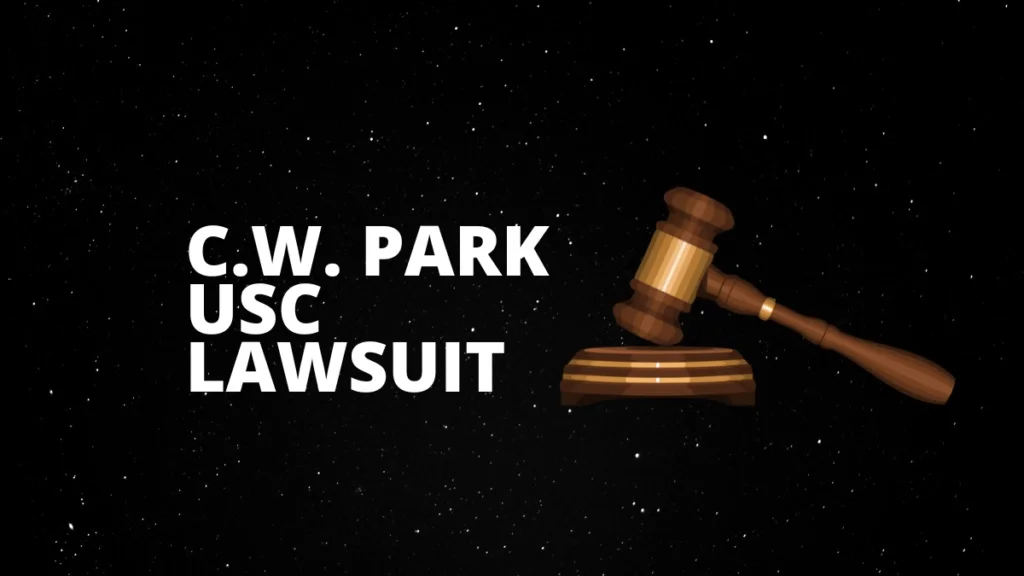The legal battle between C.W. Park and the University of Southern California (USC) has garnered significant attention in recent months. C.W. Park, a former professor at USC, has filed a lawsuit against the university, alleging discrimination, retaliation, and wrongful termination. The lawsuit has sparked a heated debate about faculty members’ treatment and academic institutions’ culture. As the case unfolds, it can potentially set a precedent for how universities handle allegations of discrimination and retaliation. This article will provide an in-depth analysis of the background, allegations, legal strategies, and potential implications of the lawsuit, shedding light on the complexities of the case and its broader impact on academia.

Background on the Legal Battle
The legal battle between C.W. Park and USC dates back to his tenure as a professor at the university. Park, who is of Korean descent, claims that he faced discrimination and retaliation from USC administrators and colleagues. According to Park, he was subjected to a hostile work environment, unfair treatment, and ultimately wrongful termination. The lawsuit alleges that Park’s mistreatment was a result of his race and national origin, as well as his outspokenness on issues related to diversity and inclusion within the university. The case has gained attention not only for the specific allegations made by Park but also for its broader implications for treating minority faculty members in academic institutions. The legal battle has become a focal point for discussions about diversity, equity, and inclusion in higher education, prompting a closer examination of the power dynamics and institutional practices within universities.
Allegations and Claims Made by C.W. Park
C.W. Park’s lawsuit against USC includes a range of allegations that paint a troubling picture of his experience at the university. Park claims that he was subjected to discriminatory treatment based on his race and national origin, including being passed over for promotions and raises that were given to his non-minority colleagues. Additionally, Park alleges that he faced retaliation for speaking out about issues related to diversity and inclusion within the university, including being marginalized and isolated by his colleagues and superiors. The lawsuit also asserts that Park’s termination was unjust and retaliatory, stemming from his efforts to address the discriminatory treatment he experienced. These allegations have sparked a broader conversation about the treatment of minority faculty members in academic institutions and have raised questions about the accountability of universities in addressing discrimination and retaliation within their ranks.
USC’s Response and Defense
In response to C.W. Park’s lawsuit, USC has vehemently denied the allegations against the university and its administrators. USC has stated that it is committed to fostering a diverse and inclusive environment for all faculty members and students and has refuted Park’s claims of discrimination and retaliation. The university has defended its actions regarding Park’s employment, stating that his termination was based on legitimate reasons unrelated to his race or national origin. USC has also emphasized its commitment to upholding fair and equitable treatment for all faculty members, regardless of their background or identity. The university’s response to the lawsuit has set the stage for a contentious legal battle, with both parties presenting conflicting narratives about the events leading up to Park’s termination and the broader culture within USC.
Legal Strategies and Arguments
The legal battle between C.W. Park and USC is poised to involve complex legal strategies and arguments from both sides. Park’s legal team is expected to present evidence supporting his allegations of discrimination, retaliation, and wrongful termination, including testimonies from colleagues and documentation of his treatment at Additionally, Park’s lawyers are likely to argue that his termination was a direct result of his efforts to address the discriminatory treatment he experienced, rather than any legitimate grounds for dismissal. On the other hand, USC’s legal team is expected to vigorously defend the university against Park’s claims, presenting evidence to counter his allegations and asserting that his termination was justified based on performance-related issues. The legal strategies employed by both parties will play a crucial role in shaping the lawsuit’s outcome. They will be closely scrutinized by legal experts and observers following the case.
Potential Implications and Outcomes
The outcome of C.W. Park’s lawsuit against USC has the potential to have far-reaching implications for academia and the treatment of minority faculty members in higher education institutions. If Park prevails in his lawsuit, it could set a precedent for how universities handle allegations of discrimination and retaliation, prompting greater accountability and transparency in addressing such issues. Conversely, if USC successfully defends itself against Park’s claims, it could reinforce existing power dynamics within academic institutions and raise questions about the efficacy of current anti-discrimination policies and practices. The lawsuit also has the potential to spark broader conversations about diversity, equity, and inclusion within universities, prompting institutions to reevaluate their approaches to fostering inclusive environments for faculty members from diverse backgrounds.
Conclusion and Future Developments
As C.W. Park’s lawsuit against USC unfolds, it will continue to draw attention from legal experts, academics, and advocates for diversity and inclusion in higher education. The case has become a focal point for discussions about the treatment of minority faculty members within academic institutions. It has prompted a closer examination of universities’ power dynamics and institutional practices. The legal battle between Park and USC is poised to involve complex legal strategies and arguments from both sides, potentially setting a precedent for how universities handle allegations of discrimination and retaliation. The lawsuit’s outcome will have far-reaching implications for academia, shaping conversations about diversity, equity, and inclusion within universities for years to come. As the case progresses, it will be closely monitored for its potential impact on the treatment of minority faculty members in higher education institutions and its broader implications for addressing discrimination and retaliation within academia.








